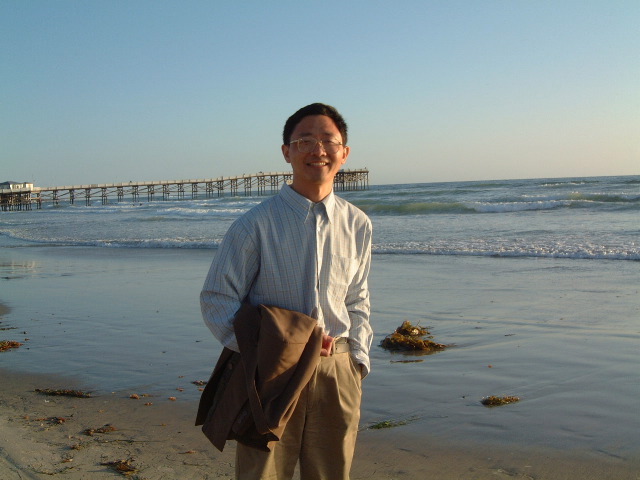-
Ping Gao

Professor, School of Life Sciences, USTC,
443 Huangshan Road, Hefei 230027, China
Tel: 86-551-63607033(O) and 86-551-63607012(lab)
Fax:0551-63607012
Email: pgao2@ustc.edu.cn
Homepage:
Personal Profile
Dr. Ping Gao obtained his Ph.D from Osaka University in Japan in 2003. He was trained as a postdoctoral fellow with Dr. Joost Oppenheim in National Cancer Institute of NIH (2003- 2005) and then with Dr. Chi van Dang at Johns Hopkins School of Medicine (2005-2007). He was a junior faculty member from 2007 to 2010 in Johns Hopkins School of Medicine, where he studied the mechanisms underlying the neoplastic activities of the cMYC oncogene. His numeric contributions to the field include the finding of a HIF-dependent Anti-tumorigenic pathway of anti-oxidants in vivo (Gao P et al., Cancer cell 2007) and the discovery highlighting c-myc suppression of mir-23a/b enhances mitochondrial glutaminase expression and glutamine metabolism (Gao P et al Nature 2009). Dr. Gao has published more than 40 peer-reviewed scientific papers, which have been cited more than 3000 time by peer researchers. He has been a professor in School of Life Science, USTC since 2010.
Research Interests
Gao Lab is focused on studying the cellular metabolism, cancer metabolism in particular, to explore the new strategy for cancer therapy. It is known that cancer cells generally adapt a specific metabolic phenotype that is characterized by the switch to aerobic glycolysis, or Warburg Effect. While this metabolic phenotype is largely believed to be responsible for the growth advantage of various cancers, the underlying mechanisms are not clear. Dr. Gao and others recently uncovered that cMyc-regulated glutamine metabolism is also important for cancer growth (Gao et al, Nature 2009), hence, we are currently exploring oncogenic regulation of glucose and amino acids metabolism in cancer cells and its significance in cancer development.
Considering the overlapping molecular features of stem cells with cancer cells, Dr. Gao’s group is also studying the potential critical role of cMyc-regulated genes and non-coding RNAs in mediating metabolic switch in stem cells. Using mouse and human iPS and ES cell systems, we are deciphering the roles of metabolic regulation in promoting somatic reprogramming and stem cell fate decision.
Dr. Gao is currently supported by the Strategic Priority Research Program of the Chinese Academy of Sciences, National Key Basic Research Program of China (973 Program), and the Natural Science Foundation of China.
